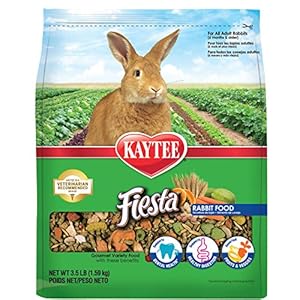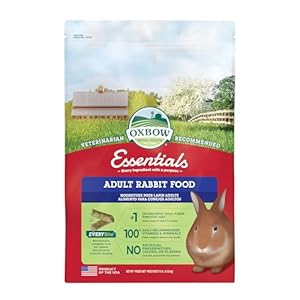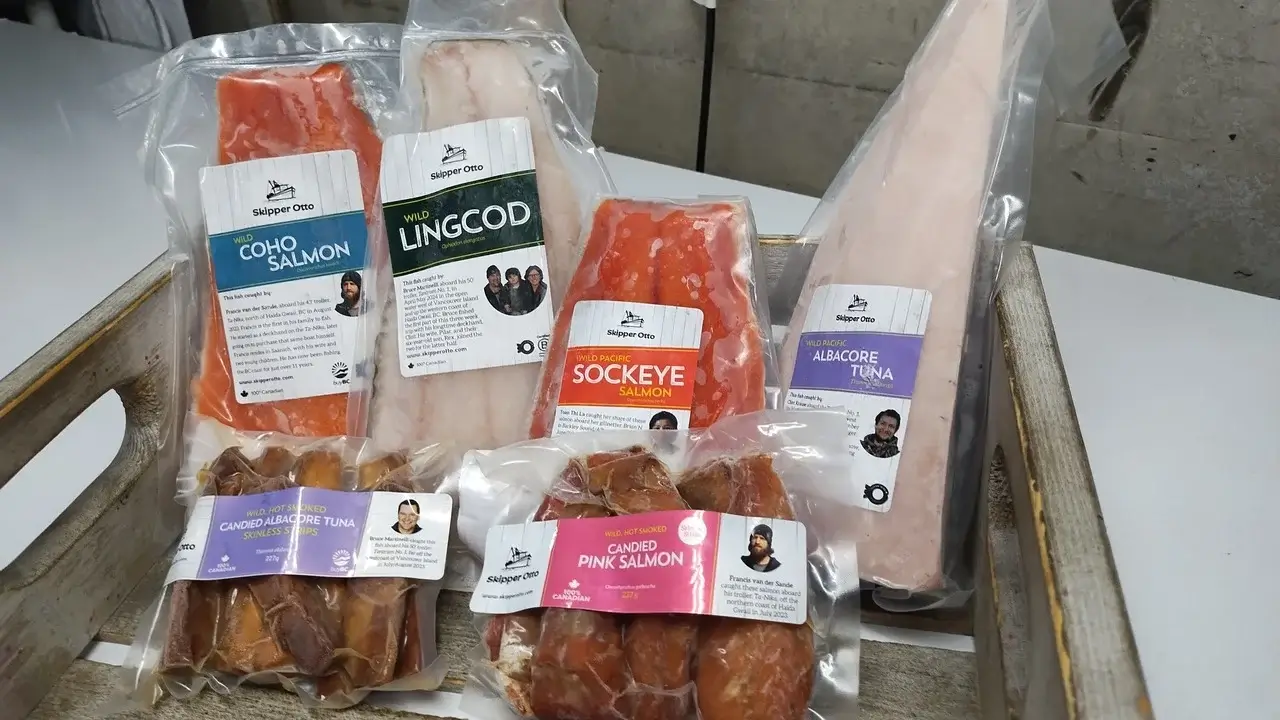
It’s Thursday afternoon, and a gradual stream of persons are arriving at Fisherman’s Wharf in Vancouver B.C. to choose up grocery baggage filled with frozen lingcod, salmon, or halibut. They’re only a few of the shoppers who signal on for a yr’s subscription to Skipper Otto, a Neighborhood-Supported Fishery (CSF).
“I’m so excited I can have this at residence,” says Allison Hepworth who simply picked up her bag of fish. Understanding how and the place the fish was caught makes a distinction to Hepworth. Every bundle of seafood has an image of the fisher who caught it, and the place and when it was caught. It reminds members that whenever you grow to be a member of Skipper Otto, you not solely get scrumptious seafood, however you’ve got performed a task in supporting the livelihoods of small unbiased fishers.
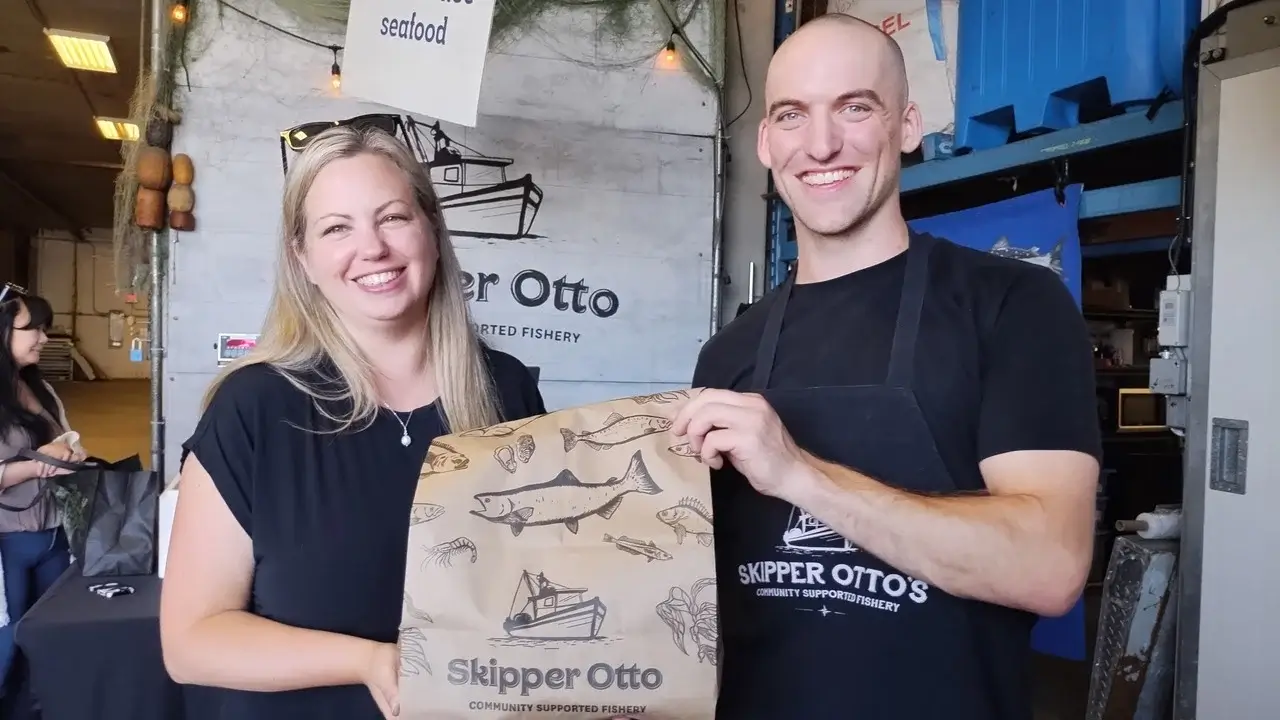

Based in 2008, by Sonia and Shaun Strobel, Skipper Otto is known as for Shaun’s Dad, Otto. When Otto started fishing within the Sixties, there have been 1000’s of unbiased small-scale fishers harvesting seafood alongside B.C.’s coast, and making an excellent residing. Over time, changes in authorities rules have allowed large manufacturing facility ships owned by giant companies to gobble up fish, which elevated the size of the availability chain. In america, the National Oceanographic and Atmospheric Administration (NOAA) estimates that 70 p.c to 85 p.c of seafood in shops is imported. Imported seafood can both imply it was harvested from world waters, or caught within the US, however exported to different nations for processing after which returned to the US. This creates an absence of transparency for the patron on the origin of their meals and provides as much as decrease wages paid to native harvesters.
It’s additionally dangerous counting on imported seafood. Shocks reminiscent of excessive climate or geopolitical occasions can disrupt world provide routes and threaten the power of seafood to be safely traded on a worldwide scale.
“The fishing lifestyle is endangered, and native fishers are shedding entry to markets,” says Sonia Strobel.
TAKE ACTION
Discover and assist native, sustainably caught fish with the Native Catch Community.
That is the place a Community-Supported Agriculture (CSA) mannequin is available in. Or, on this case, a CSF. Just like how a CSA mannequin invitations members to spend money on an area farm and buy produce earlier than it’s harvested, a CSF mannequin additionally pre-sells seafood earlier than it’s caught, inviting members to spend money on the livelihood of unbiased fishers.
The pre-sale of seafood removes the uncertainty as as to if they may have a purchaser for his or her seafood and the value they may obtain for the catch. Together with assured earnings, the character of a CSF and an area meals system permits fishers to pivot their catch to match what is on the market and considerable. “If one yr the sockeye salmon return is low and Coho salmon are considerable, then, that’s what Skipper Otto members are supplied,” explains Strobel.
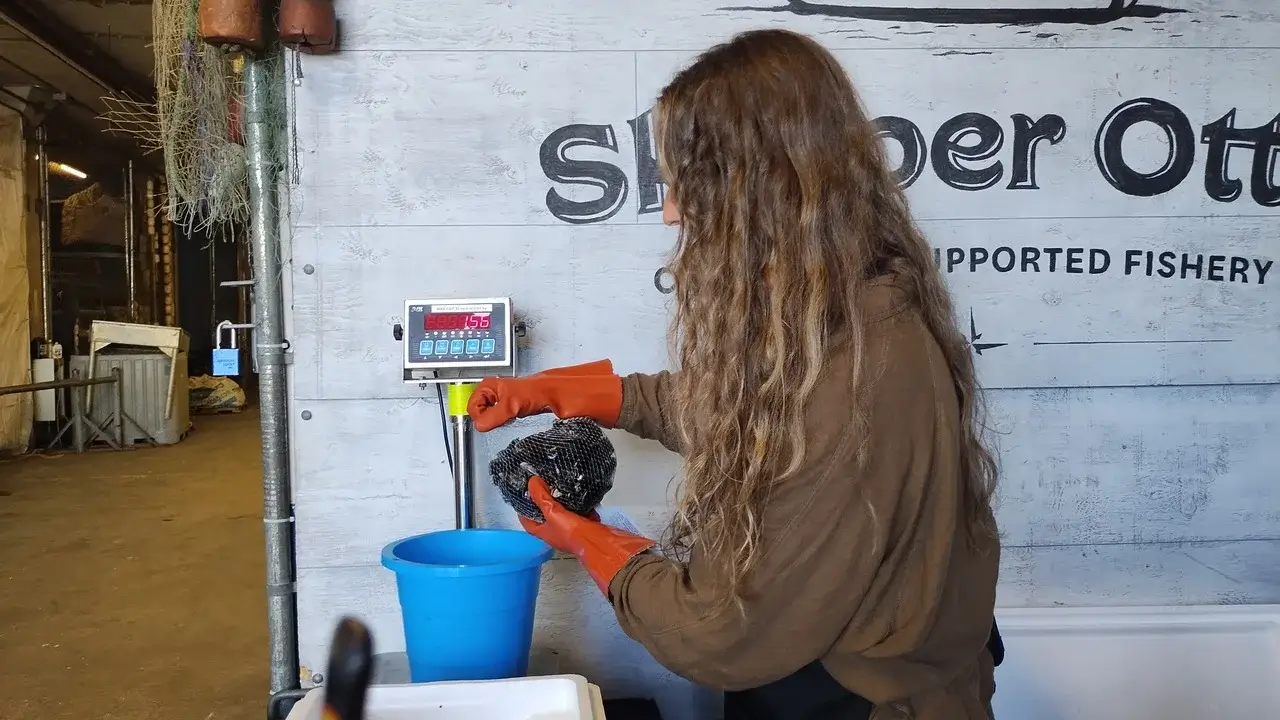

Skipper Otto’s 8,000 members are provided sustainability caught fish from 45 fishing households. This rising success over the previous decade and a half has made Strobel a powerful advocate for unbiased fisheries, one thing put to the check in 2021. For many years, unbiased harvesters in B.C. have frozen tubs of spot prawns in salt water whereas at sea to protect them till they return to port.
Simply earlier than the beginning of the 2021 spot prawn season, a reinterpretation of a authorities regulation that each one catches should be available for inspection induced Canada’s Division of Fisheries and Oceans (DFO) to ban the sale of frozen-at-sea spot prawns. Frozen prawns, it was argued, weren’t available for inspection. This made little sense to Strobel or unbiased fishers, particularly as they are saying thawing a bath of prawns took minutes. Strobel and the Skipper Otto group say the coverage had the potential to collapse an industry price $30 million to $50 million yearly, and take away the livelihoods of unbiased spot prawn fishers, maybe completely. Strobel turned to Skipper Otto’s huge membership, asking them to signal petitions and write letters in protest. Skipper Otto’s affect performed a task within the authorities reversing the coverage.
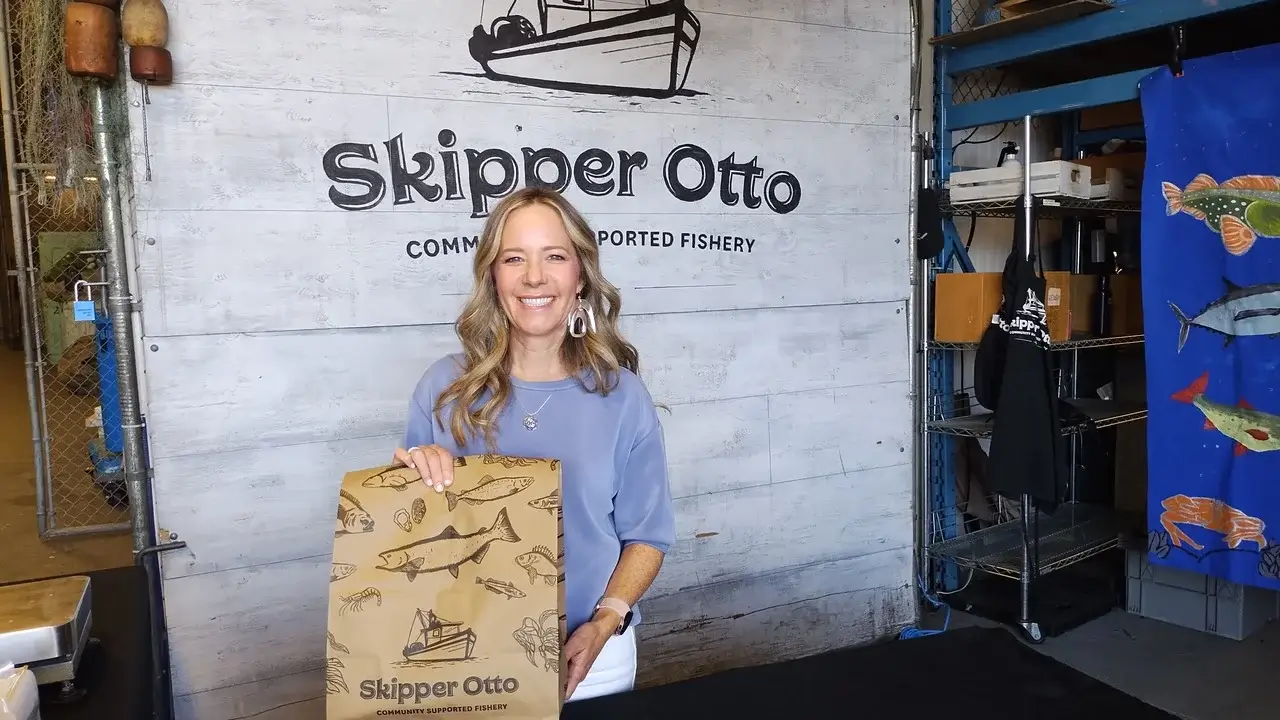

Persevering with to advocate, Strobel has spoken in entrance of Canada’s Home of Commons and sits as a volunteer on the chief committee of Local Catch Network, a North American hub that advocates for native and community-based seafood programs. Via Native Catch’s mentorship program, Strobel was linked with Cadena Ragsdale, proprietor of Kauai Fresh Fish in Hawaii. When Ragsdale began her enterprise in 2022, it was exhausting to seek out recent native fish.
“We rapidly realized there was a requirement for recent native fish and a transparency in the place the fish got here from,” says Ragsdale. As in B.C., unbiased fishers don’t all the time obtain honest costs for his or her catches. That very same story might be heard throughout North America.
In northern Saskatchewan, Indigenous fishers are shedding markets for his or her freshwater catches of walleye and pike. Skipper Otto hopes so as to add these fishers as suppliers, providing assured gross sales and honest market worth. In Nunavut, Inuit lake fishers drive out on skidoos in the midst of winter to frozen freshwater lakes, drill holes and, utilizing gill nets, pull in by hand their catch of Arctic char. The fish is processed, frozen and obtainable to Skipper Otto members.
LEARN MORE
Learn up on Neighborhood Supported Fisheries.
Regardless of enlargement, Strobel doesn’t see Skipper Otto as competitors with the economic fishery. “None of us desires to catch the final fish,” she says. What Skipper Otto provides is insurance coverage that recent native seafood stays obtainable and there’s a strong community of small-scale fishers to catch it.
Again at Fisherman’s Wharf, Hepworth completes her order with freshly harvested mussels. At residence, she’s going to pull the frozen fish out of her freezer, as wanted, and pan-fry it with butter and lemon for her household.
“We’re reconnecting folks to meals,” says Strobel.
Trending Merchandise


